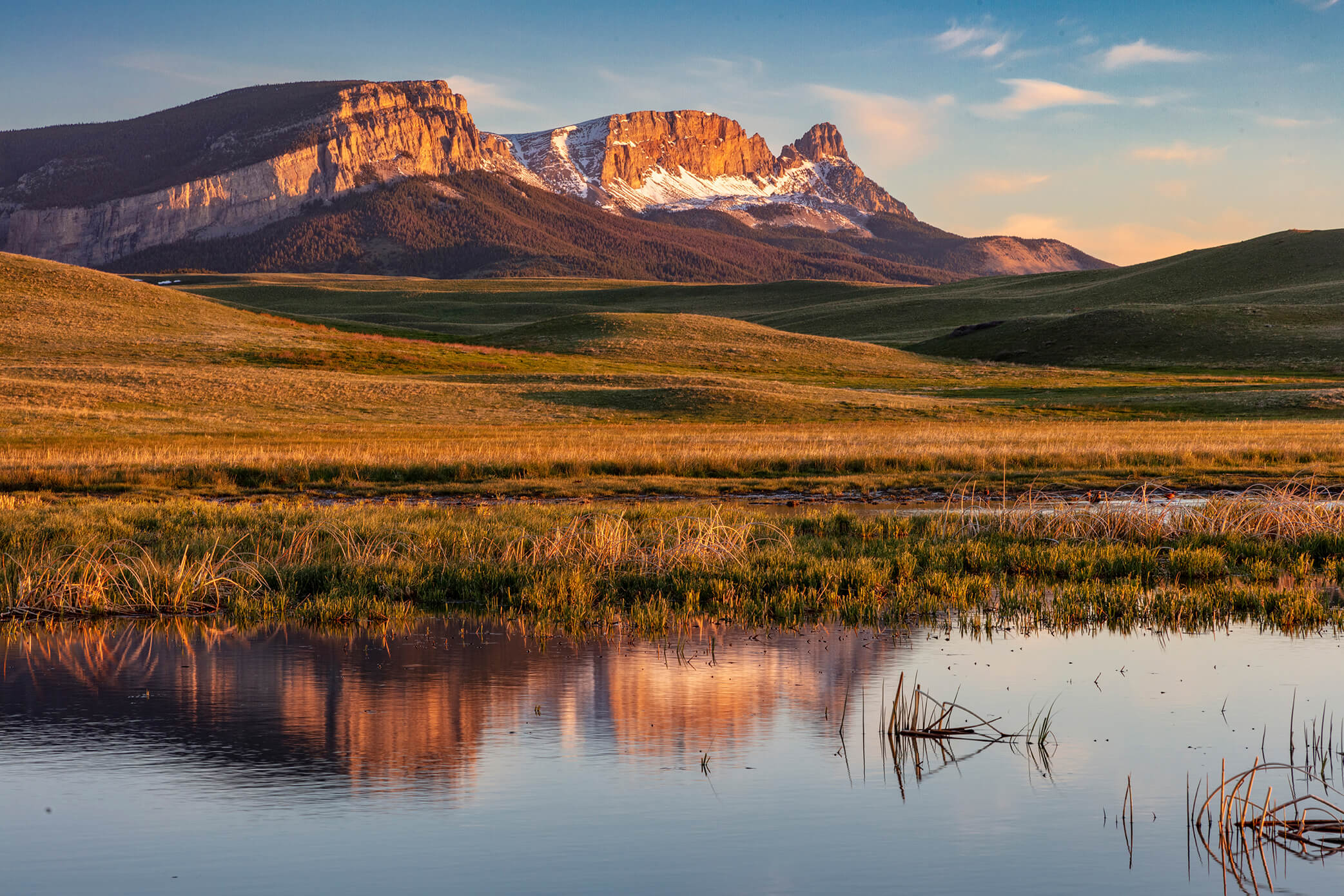Ducks Unlimited Applauds Montana's Creation of Habitat Legacy Account
House Bill 932 secures permanent funding for outdoor recreation and habitat through cannabis tax revenue.
House Bill 932 secures permanent funding for outdoor recreation and habitat through cannabis tax revenue.

Ducks Unlimited is proud to have worked on both sides of the political aisle with Montana legislators, bill sponsors, and the governor to help pass Montana House Bill 932, which allocates $32 million through recreational cannabis tax revenue every two years to support outdoor recreation and habitat. The bill has now been signed into law.
While most of the funds will go toward wildlife habitat projects, public access, working lands initiatives, and protecting Montana’s outdoor heritage, it's also the first bill in the nation to help create wildlife crossings and improve public safety in areas of the state with fragmented migration corridors.
"The passing of HB 932 is a true example of how good work can be accomplished when conservation challenges are identified and addressed with everyone rolling up their sleeves to make needed improvements," said Ryan Taylor, DU's Director of Public Policy in the Great Plains Region. "We want to thank the representatives, senators, and, of course, Governor Gianforte, for proposing, passing, and signing this important piece of legislation that will help keep Montana, Montana, with abundant and productive habitat and outdoor opportunities that benefit residents, sportsmen and women, ranchers and landowners, and everyone with an appreciation for the Big Sky State."
HB 932 is an upgrade from Habitat Montana, which historically used a portion of hunting license fees for Montana Fish, Wildlife and Parks to secure conservation easements and new public wildlife management areas. After July 1, 2025, when the law takes effect, the more recent share of cannabis tax revenue will go into a new account titled the Habitat Legacy Account, which funds:
In addition to funding public projects, private landowners, tribal governments, conservation districts and other organizations and agencies will be able to apply for funds to assist with riparian restoration, soil health, fencing and invasive species mitigation.
Media Contact:
Ben Romans
(208) 761-7775
bromans@ducks.org
Ducks Unlimited uses cookies to enhance your browsing experience, optimize site functionality, analyze traffic, and deliver personalized advertising through third parties. By continuing to use this site, you agree to our use of cookies. View Privacy Policy